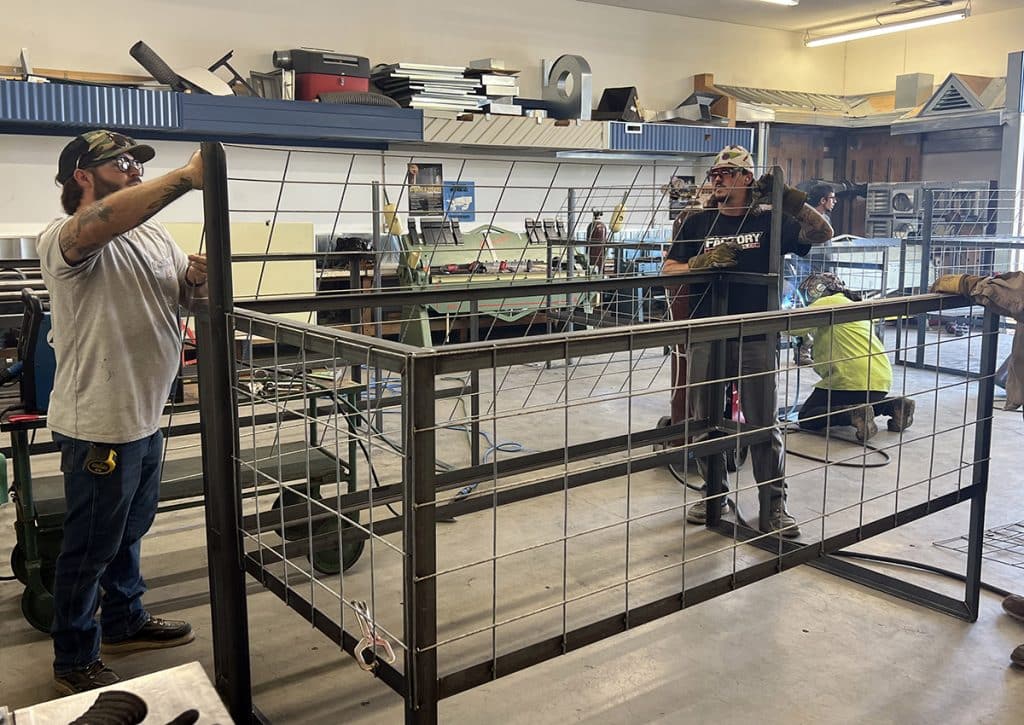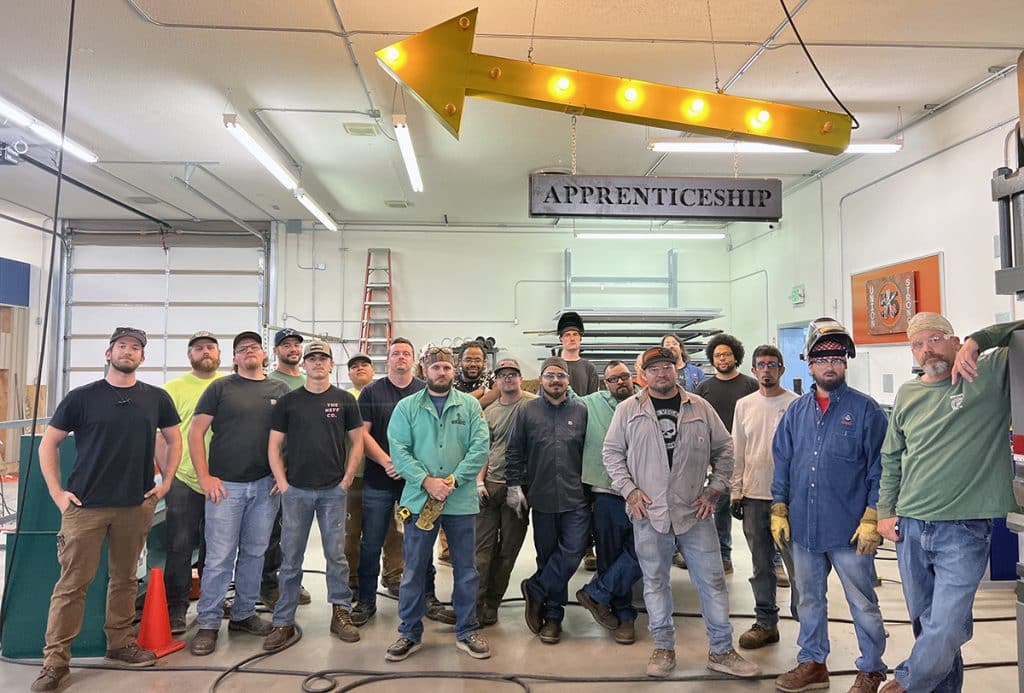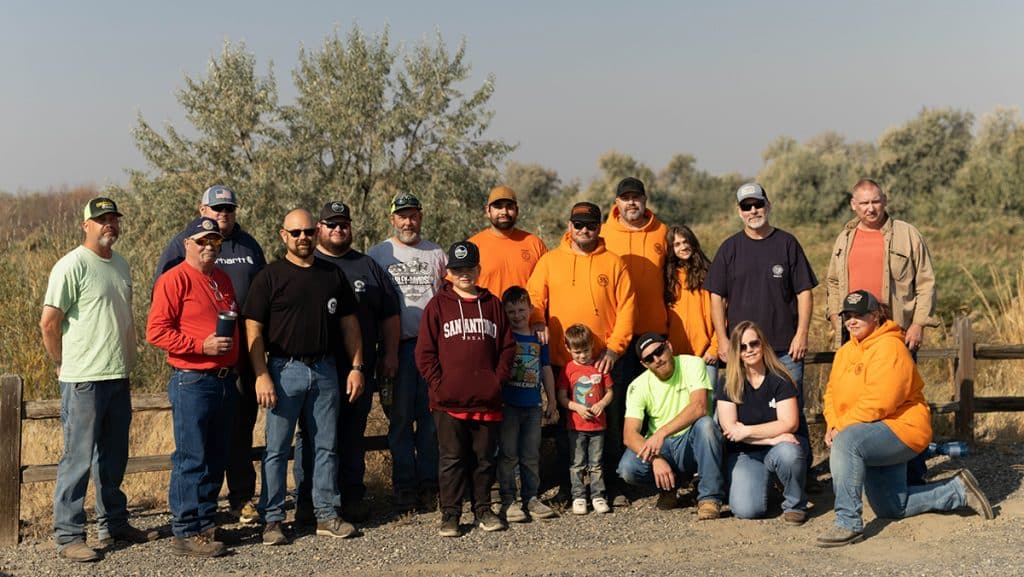
Waterfowlers in the Northwest will have access to several new duck hunting blinds in the Mid-Columbia River National Wildlife Refuge Complex (NWRC) because of a recent Union Sportsmen’s Alliance (USA) Work Boots on the Ground conservation project completed by union volunteers.
Twenty sheet metal apprentices of SMART Local 55 donated 400 hours of labor to build eight blinds, including three wheelchair-accessible blinds, to U.S. Fish and Wildlife Service (FWS) specifications, according to Travis Swayze, IBEW Local 112 business manager and the project leader.
“When the pandemic was in full swing, we postponed a couple of things, including a Take Kids Fishing event,” he said. “So this is really our first USA project. And I must hand it to the sheet metal workers for stepping up and getting it done in the amount of time we had.”
“When we proposed the project to Travis, he jumped on it,” said USA Conservation Programs Manager Sam Phipps. “He knew how much of an impact it would have with the hunting public and a valuable partner like the Fish and Wildlife Service — and he picked up the reins.”

On Saturday, October 8, 24 union volunteers from SMART Local 55, IBEW Local 112 and IUPAT District Council 5 donated 100 hours to install four of the new hunting blinds on the Umatilla National Wildlife Refuge, said Lamont Glass, Mid-Columbia River NWRC visitor services manager.
“They were put into a high-traffic unit where no type of blind existed before,” Glass said, “so they’ll be a good addition to our lottery draw area.”
Overall, union members donated approximately 500 hours of labor, a value of $26,500, to the waterfowl blind project, while funding for building materials came from the FWS and proceeds from the USA’s Tri-Cities Building & Construction Trades Council Conservation Dinner.
“And there were many more people behind the scenes who were part of the whole process,” added Swayze, “including volunteers from the International Brotherhood of Electrical Workers; Laborers International Union of North America; International Association of Sheet Metal, Air, Rail and Transportation Workers; Operative Plasterers’ and Cement Masons’ International Association; United Association of Journeymen and Apprentices of the Plumbing and Pipefitting Industry of the United States and Canada; International Association of Bridge, Structural, Ornamental and Reinforcing Iron Workers Union; along with the Washington State, Central Washington and Pendleton Building & Construction Trade Councils, who were heavily involved in our chapter banquets. These fundraising dinners make projects like this possible.”

FWS personnel will install one wheelchair-accessible blind in a newly developed area at McNary Wildlife Refuge, as well as a new blind to replace an old pit blind at the Cold Spring refuge, Glass further explained. Two accessible blinds will be installed over the next year as opportunities to open new areas arise, he added.
“It was this refuge system’s first partnership with the USA and local union volunteers, and it turned out well,” Glass said. “It was a great savings in labor costs for the FWS, and we look forward to working together on future projects.”
“With the nature of the union building and construction trades, it makes sense for us to work with an organization like the Union Sportsmen’s Alliance that supports our members’ activities,” Swayze concluded. “All the union affiliates strive to give back to the communities in which their members live and work, and our union brothers and sisters are always up for the task at hand.”
Related News
- Special Focus: SMART sisters bring the noise to Washington, DC
- Seizing the moment for our families
- Building a labor movement that secures our future
- The stage is set for important advancements in 2024
- Forging the future
- SMART-TD members ratify BNSF tentative agreement
- SMART RME wins major victory for furloughed members
- A year of progress: Looking back on BE4ALL’s 2023
- SMART-TD helps win two-person crew in N.Y.
- High-speed rail projects will create jobs for SMART members